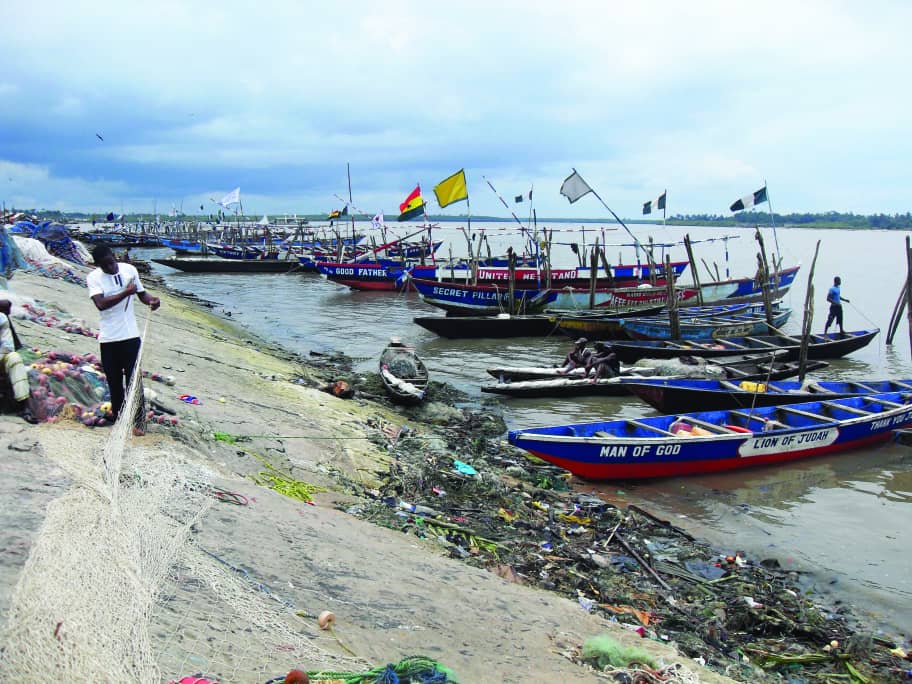The gubernatorial candidate of the Action Democratic Party (ADP) in Akwa Ibom State, in the March 11 governorship election, Dr Ekere Essien says Akwa Ibom State, with abundant maritime resources, is strategically positioned in the Gulf of Guinea to harness her blue economy potentials for economic growth and development.
Dr Essien noted that the harnessing of the blue growth potentials in Akwa Ibom would require focused and decisive actions on the part of policymakers in cross-cutting areas which include, institutional development and governance, spatial planning, data management and knowledge creation, dissemination of relevant information on blue growth and blue financing.
He called on the state governor, Pastor Umo Bassey Eno to consider the urgent need to open up the blue economy corridors through the construction of link roads to the coastal areas to accelerate the growth of maritime businesses in the littoral oil and gas state.
Dr Essien, a notable dental surgeon and accomplished entrepreneur, stated this when he played host to the Senior Special Assistant (SSA) to Bayelsa State Governor on Tourism and facilitator of the South-South Tourism Roundtable initiative, Dr Piriye Kiyaramo accompanied by the Akwa Ibom facilitator of the South-South Tourism Roundtable and Managing Director/CEO of Legacy Tourism Development Services Ltd, Mr Usen Udoh in his office in Uyo at the weekend, pledged his support for the governor.
The gubernatorial candidate noted that the construction of link roads to connect the coastal towns and villages in the state would enable the golden administration of Pastor Umo Eno to harness the maritime resources as part of efforts to open up the blue economy corridors of the oil-rich State, adding that natural resources constitute a major factor that spurs economic growth.
Earlier, the Senior Special Assistant (SSA) to Bayelsa State Governor on Tourism, Dr Piriye Kiyaramo, who also doubles as the facilitator of the South-South Tourism, Roundtable initiative, said he was in Uyo as part of efforts to interface with critical stakeholders to seek possible areas of cooperation and collaboration in harnessing the tourism potentials that abound in the state.
According to Dr Kiyaramo, Akwa Ibom State was so endowed in natural resources, ranging from the rich biodiversity, history, cultural heritage, tourists attractions and fine sand beaches on a long coastline, informing the blue economy goes beyond the traditional maritime activities, encompassing a holistic approach to blue growth that balances economic growth, environmental sustainability, and social inclusivity.
He said the development of a sustainable blue economy in Akwa Ibom would allow coastal areas to have value from the water bodies, including the ocean and coastline, with respect to their long-term capacity for regeneration and restoration of the health of the ecosystem.
Dr Kiyaramo enumerated marine fisheries, aquaculture, seafood fish processing, trade, technology, marine services, skill development, logistics and shipping, including trans-shipments, coastal and deep-sea mining and offshore energy, as major components of the blue economy which create jobs for the unemployed population.
The South-South Tourism Roundtable facilitator who expressed confidence in Pastor Umo Eno’s ‘Arise Agenda, appealed to him to focus on the blue economy which, he noted will attract marine industrial activities, such as construction works, transportation, mineral resources development, shipbuilding, communication cable laying, pharmaceutical enterprises, equipment deployment, sustainable energy from waves, currents, seaside leisure tourism, fisheries and aquaculture.
Also speaking, Akwa Ibom State facilitator of the South-South Tourism Roundtable and Managing Director of Legacy Tourism Development Services Ltd Uyo, Mr Usen Udoh who also is the chairman of Akwa Ibom Tourism and Hospitality Practitioners’ Association (AKTHOPA), gave the assurance that Pastor Umo Bassey Eno will open up the state to the Blue Economy Corridors to accelerate maritime businesses, informing that the Ibom Deep Seaport project is critical to the security and economic well being of the country.
Mr. Udoh maintained that ‘around the world, every serious maritime nation dedicates her fishing terminals and jetties for economic growth and to expand the industrial scale of fishing, pointing out that fishing terminals are designed to drive job provision from the non-oil sector of the economy.
He expressed the confidence that His Excellency, Pastor Umo Eno will certainly resuscitate the two major fishing terminals in Ebughu and Ibaka in the Mbo Local Government Area of the state to explore the blue growth opportunities, just as he reiterated the urgent need to constitute a blue economy committee to assess these fishing terminals for optimal use.
According to Mr Udoh, the two fishing terminals in the state will rake in huge internally generated revenue as well as create hundreds of jobs for the teaming unemployed youths at the grassroots, adding that fish processing and storage facilities for the preservation of fish among other infrastructures will make Akwa Ibom the hub of seafood in the Gulf of Guinea.
Mr Udoh explained further that the anticipated blue economy corridors would equally catalyse the economic development of Akwa Ibom in line with the ‘Arise agenda’ of Pastor Umo Eno to achieve prosperity for the people, stressing that the golden era administration is the best thing that has happened to Akwa Ibom, given the governor’s passion for holistic socio-economic transformation of the maritime state.
The pioneer chairman of the Federation of Tourism Associations of Nigeria (FTAN) in Akwa Ibom also corroborated the fact that the establishment of the blue growth corridors in the state would prevent distress migration and provide rural people with job opportunities close to their dwelling places, adding that exploring the different industrial corridors will also prevent concentration of industries in one particular location which could exploit the environment beyond its carrying capacity and likely to cause environmental degradation.



